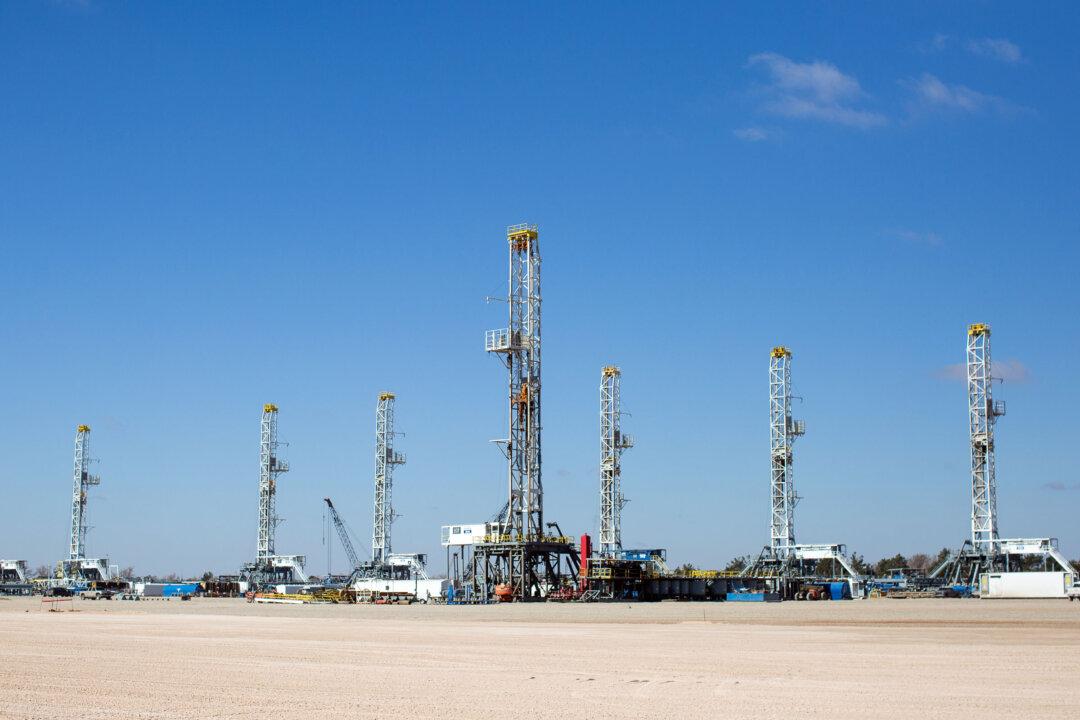NEW YORK—The U.S. Treasury Department on Monday announced revised bailout terms for American International Group (AIG), after the beleaguered insurance giant posted a staggering third-quarter loss of $24.47 billion.
AIG pinned the losses on continued turmoil in the financial markets which further hurt its investment portfolio, insurance payouts due to natural disasters, and restructuring costs.
The $24.47 billion loss and $9.05 loss per share stands in stark contrast with the $3.09 billion in net profit the company reported during the third quarter last year.
“Third quarter results reflect extreme dislocations and volatility in the capital markets and significant charges related to restructuring activities,” said AIG Chairman Edward Liddy in a statement. While AIG’s investments in complex credit derivatives have severely backfired, Liddy said the company’s core insurance businesses remain solid.
“Reported earnings are not indicative of the underlying core earnings power of our insurance businesses, which remain solidly capitalized,” he added. AIG’s insurance unit lost $899 million, mostly due to $1.39 billion in payouts related to Hurricanes Ike and Gustav.
In September the Fed created an $85 billion credit line to stave off a bankruptcy after AIG had seemingly run out of cash. The Fed added $38 billion more in October when it became apparent that the company needed more money to survive.
On Monday the Treasury and AIG issued a joint statement announcing a new equity investment into the company through the 2008 Trouble Asset Relief Program (TARP). The Treasury would purchase $40 billion in newly issued preferred stock in AIG, the proceeds of which will be used to pay down its debt to the Fed. The shares would carry a ten percent annual dividend.
In addition, the parties loosened terms of the original loan provided to AIG to remove excess burden on the company in the near term.
Liddy defended the new capital injections, which would put total investments into AIG by the U.S. government to $150 billion, the largest assistance ever for any private enterprise. “American taxpayers will be fairly compensated for funds lent to AIG, and they will capture the majority of any appreciation in the value of the securities involved in the program in the years ahead,” Liddy said.
AIG pinned the losses on continued turmoil in the financial markets which further hurt its investment portfolio, insurance payouts due to natural disasters, and restructuring costs.
The $24.47 billion loss and $9.05 loss per share stands in stark contrast with the $3.09 billion in net profit the company reported during the third quarter last year.
“Third quarter results reflect extreme dislocations and volatility in the capital markets and significant charges related to restructuring activities,” said AIG Chairman Edward Liddy in a statement. While AIG’s investments in complex credit derivatives have severely backfired, Liddy said the company’s core insurance businesses remain solid.
“Reported earnings are not indicative of the underlying core earnings power of our insurance businesses, which remain solidly capitalized,” he added. AIG’s insurance unit lost $899 million, mostly due to $1.39 billion in payouts related to Hurricanes Ike and Gustav.
New Cash Injection
The U.S. Treasury Department and the Federal Reserve on Monday announced a revised bailout plan to inject new capital into the struggling insurance agency.In September the Fed created an $85 billion credit line to stave off a bankruptcy after AIG had seemingly run out of cash. The Fed added $38 billion more in October when it became apparent that the company needed more money to survive.
On Monday the Treasury and AIG issued a joint statement announcing a new equity investment into the company through the 2008 Trouble Asset Relief Program (TARP). The Treasury would purchase $40 billion in newly issued preferred stock in AIG, the proceeds of which will be used to pay down its debt to the Fed. The shares would carry a ten percent annual dividend.
In addition, the parties loosened terms of the original loan provided to AIG to remove excess burden on the company in the near term.
Liddy defended the new capital injections, which would put total investments into AIG by the U.S. government to $150 billion, the largest assistance ever for any private enterprise. “American taxpayers will be fairly compensated for funds lent to AIG, and they will capture the majority of any appreciation in the value of the securities involved in the program in the years ahead,” Liddy said.



